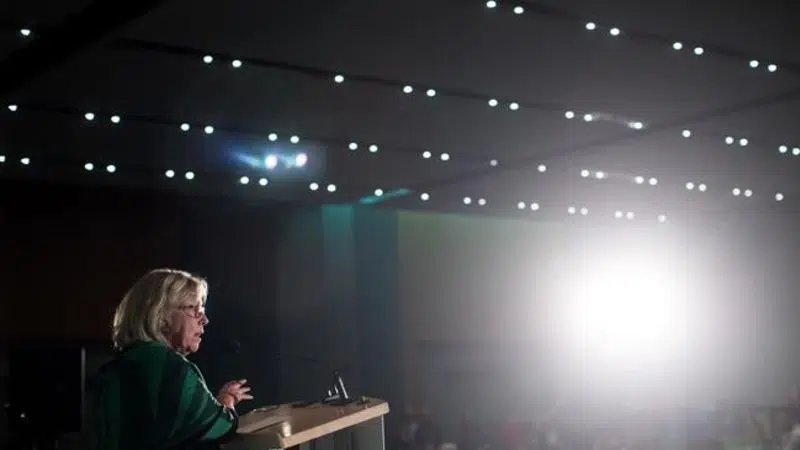
Next election could be some time away, predicts Green Leader Elizabeth May
SIDNEY, B.C. — Elizabeth May isn’t expecting another federal election any time soon, but she’s already telling Prime Minister Justin Trudeau what will keep the Greens from voting against his government.
May said Thursday she she has written to Trudeau warning the Greens will not support confidence motions if the federal government does not move to increase its climate change targets, currently at 30 per cent below 2005 levels by 2030.
“I wanted to repeat we cannot vote confidence at any point on a confidence motion in a government that fails to have a climate target that’s ground in science and consistent with what the Intergovernmental Panel on Climate Change says we must do. That’s clear,” May told a news conference at her constituency office in Sidney, B.C.
She said Canada’s current target is a leftover mark set by former prime minister Stephen Harper.
